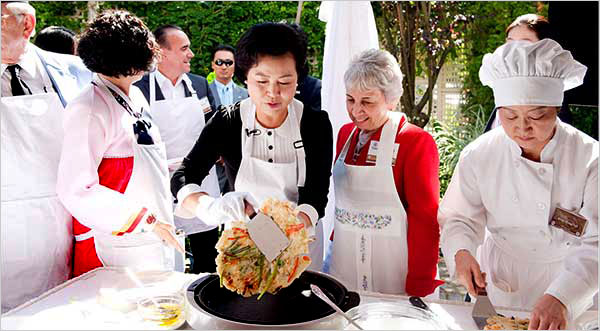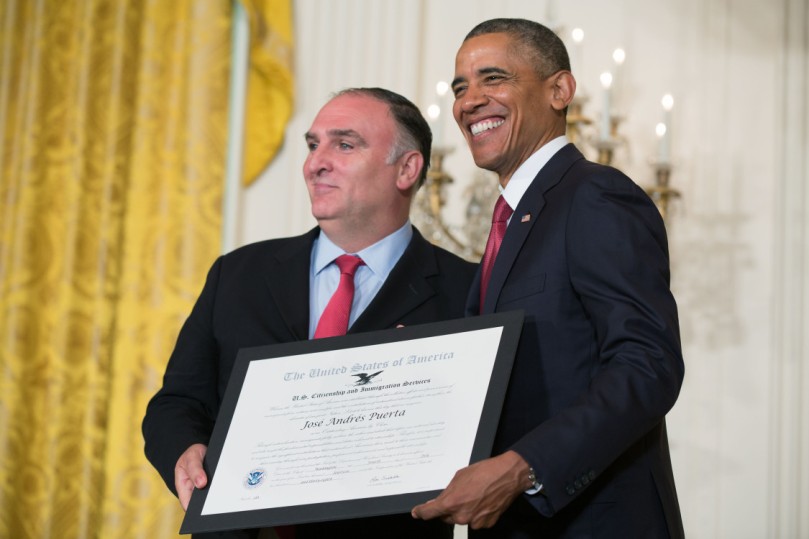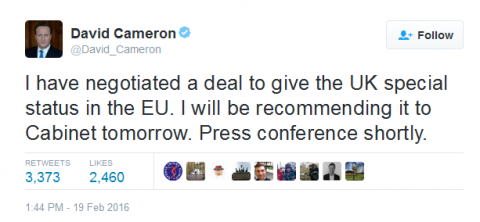pdgc2015c.wordpress.com
Gastrodiplomacy is a fairly new element of cultural diplomacy within the field of public diplomacy. The aim of gastrodiplomacy is to use food to communicate and engage with global publics and attempting to create emotional connections by winning the hearts and minds through culinary pleasures (Rockover [sic -- JB], 2014: 13). Additionally gastrodiplomacy is utilised as a tool for nation branding by using a nation’s traditional food cuisines and cultures to create or enhance a more positive global image of the country as a whole (Ruddy, 2014: 29). Indeed, as Hillary Clinton has claimed food to be “the oldest form of diplomacy” (ibid.: 29), it is only plausible that positive culinary experiences and reputations would perhaps be the one of the most effective ways to enhance a nation’s image. Among other East Asian countries that have adopted gastrodiplomacy as a part of their diplomatic ‘artillery’, South Korea has been particularly dedicated on using the approach to promote the country’s image. In 2009 South Korea launched a multi-million dollar campaign labelled ‘Korean Cuisine to the World’, which aimed to exponentially increase the number of Korean restaurants around the world by funding international culinary classes involved with Korean cooking, as well as supporting domestic students by granting scholarships for attending food festivals and culinary schools around the world (CPD, 2015). The diplomatic value of this culinary campaign was truly demonstrated when the First Lady of South Korea at the time of the launch of the campaign personally cooked a hearty South Korean meal to a group of American veterans who had fought in the Korean War (Moskin, 2009).

Image 1. Former South Korean First Lady personally prepared a meal for American war veterans.
Furthermore, the United States has taken extra steps on the road of gastrodiplomacy by appointing distinguished chefs as ‘culinary ambassadors’. The most famous of such gastro diplomats is perhaps chef José Andrés, who was appointed the position of a culinary ambassador in 2011 (Spiegel, 2016). During his appointment he has for instance taken part in the Global Entrepreneurship Summit in Nairobi, Kenya (Savoy, 2015). The chef known for his advocacy for combatting global food and hunger issues, took time outside of the official agenda of the Summit to privately meet and engage with all the African chefs working in the Summit in order to draw their attention to said hunger issues and cooking related deaths around the world through his innovative ways of food preparation (ibid.). Additionally Andrés has accompanied president Obama on a trip to Cuba with prospects to improve business opportunities between the countries, where he was entrusted with the task of leading conversations related to the restaurant, food and beverage industries (Spiegel, 2016).

Image 2. Barack Obama with U.S. culinary ambassador José Andrés.
Additionally, gastrodiplomacy can be used as an effective tool in order to attain desired outcomes from international diplomatic negotiations. During the EU summit in February 2016 where EU officials came together to negotiate the terms of Britain’s continued membership in the European Union, the negotiations turned out particularly lengthy as no agreement was promptly reached (BBC, 2016). Interestingly, as the negotiations dragged on, the attending European leaders found each promised meal of the day, including breakfast, continuously cancelled, while each of these meals was labelled as ‘English’ breakfast, lunch, and so on (ibid.). Whether this somewhat reversed approach to gastrodiplomacy had any genuine effect on the outcomes of the negotiations, on the 19th of February the British Prime Minister David Cameron came out successful as he immediately tweeted having secured a special status for Britain in the EU which led to his endorsement for remaining in the Union (Phipps, 2016).

Image 3. David Cameron promptly tweeted about the successful outcome of the EU Summit in February 2016.
Gastrodiplomacy has admittedly enriched the public diplomatic field with delicious diversity. Whether it is to enhance relations between countries such as in the case of the United States and Cuba, or to enhance a national brand as demonstrated by South Korea, in the world where diplomatic agreements behind closed doors away from the public eye are undoubtedly left in the history, gastrodiplomacy offers many possibilities for more positive and well fed global relations.
————————————————————————–
References
BBC (2016) EU Summit: The ‘English’ Meals the Leaders Have Missed Out On, Available at: http://www.bbc.co.uk/news/uk-politics-eu-referendum-35615291, Accessed: 27 April 2016.
USC Center on Public Diplomacy (CPD) (2015) ‘Eight great gastrodiplomacy nations’, University of Southern California, Available at: http://uscpublicdiplomacy.org/story/eight-great-gastrodiplomacy-nations, Accessed: 27 April 2016.
Moskin, J. (2009) ‘Culinary diplomacy with a side of Kimchi’, New York Times, Available at:http://www.nytimes.com/2009/09/23/dining/23kore.html, Accessed: 27 Aprli 2016.
Phipps, C. (2016) ‘EU Summit: Cameron secures deal and starts campaign to keep Britain in – as it happened: Closing summary’, The Guardian, Available at:http://www.theguardian.com/world/live/2016/feb/19/eu-summit-all-night-negotiations-deal-cameron-live, Accessed: 27 April 2016.
Rockover [sic - JB], P. (2014) ‘The state of gastrodiplomacy’, Public Diplomacy Magazine, Issue 11, Available at:http://publicdiplomacymagazine.com/wp-content/uploads/2014/02/GASTRODIPLOMACY-PDF.pdf, Accessed 27 April 2016.
Ruddy, B. (2014) ‘Hearts, minds, and stomachs: gastrodiplomacy and the potential of national cuisine in changing public perceptions of national image’, Public Diplomacy Magazine, Issue 11, Available at:http://publicdiplomacymagazine.com/wp-content/uploads/2014/02/GASTRODIPLOMACY-PDF.pdf, Accessed: 27 April 2016.
Savoy, A. (2015) ‘U.S. culinary ambassador encourages chefs to change the world’, U.S. Department of State Official Blog, Available at:https://blogs.state.gov/stories/2015/08/10/us-culinary-ambassador-encourages-chefs-change-world, Accessed: 27 April 2016.
Spiegel, A. (2016) ‘José Andrés is in Cuba as the US culinary ambassador’, Washingtonian, Available at:https://www.washingtonian.com/2016/03/21/jose-andres-in-cuba-with-president-obama/, Accessed: 27 April 2016.
Images
Image 1. Credit: New York Times,http://www.nytimes.com/2009/09/23/dining/23kore.html.
Image 2. Credit: National Geographic,http://theplate.nationalgeographic.com/2014/07/24/jose-andres-what-it-means-to-cook-american-food/.
Image 3. Credit: David Cameron, https://twitter.com/David_Cameron.
No comments:
Post a Comment